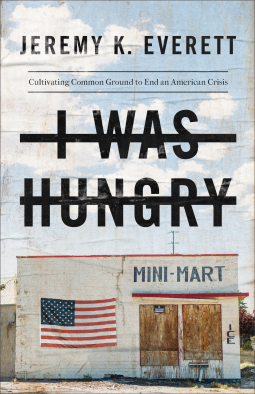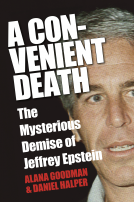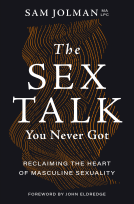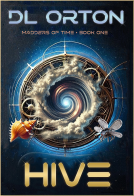
I Was Hungry
Cultivating Common Ground to End an American Crisis
by Jeremy K. Everett
This title was previously available on NetGalley and is now archived.
Send NetGalley books directly to your Kindle or Kindle app
1
To read on a Kindle or Kindle app, please add kindle@netgalley.com as an approved email address to receive files in your Amazon account. Click here for step-by-step instructions.
2
Also find your Kindle email address within your Amazon account, and enter it here.
Pub Date Aug 20 2019 | Archive Date Aug 16 2019
Talking about this book? Use #IwasHungry #NetGalley. More hashtag tips!
Description
I Was Hungry offers not only an assessment of the current crisis but also a strategy for addressing it. Jeremy Everett, a noted advocate for the hungry and poor, calls Christians to work intentionally across ideological divides to build trust with one another and impoverished communities and effectively end America's hunger crisis. Everett, appointed by US Congress to the National Commission on Hunger, founded and directs the Texas Hunger Initiative, a successful ministry that is helping to eradicate hunger in Texas and around the globe. Everett details the organization's history and tells stories of its work with communities from West Texas to Washington, DC, helping Christians of all political persuasions understand how they can work together to truly make a difference.
Advance Praise
“Jesus taught us that how we treat the least among us is how we treat him. ‘It was me,’ Jesus says very directly. Jeremy Everett, a respected advocate for the hungry, does what few do well; he connects faith to public policy. This book doesn’t just address theoretical policy issues but shines a bright light of faith on how we as a nation and a church can overcome hunger. This book show us how to apply faith to public policy.”—Jim Wallis, New York Times bestselling author of America’s Original Sin: Racism, White Privilege, and the Bridge to a New America; president of Sojourners; editor-in-chief of Sojourners magazine
“An urgent, biblically grounded summons to Christians to end the tragedy of contemporary poverty in America. Everett uses gripping personal stories to show both the wrenching agony of that poverty and also how it is quite possible to dramatically reduce it. Biblical. Factual. Practical. Engaging.”—Ronald J. Sider, author of Rich Christians in an Age of Hunger
“Nothing beats the influence of a great story, and Jeremy Everett has a powerful one to tell. His insights into the issues of poverty and hunger, his journey to the founding of the Texas Hunger Initiative, and his combination of humility and faithfulness make him a captivating author. By the end of this book, readers will understand that they have a mentor and colleague in Jeremy who will help guide their own efforts to make their communities hunger free, as well as a friend who will help them guide their own personal spiritual journeys for a more just world.”—Ambassador Tony P. Hall
“I Was Hungry is a call to action for one of the most pressing issues facing our nation. In one of the most polarizing eras in our history, Everett points us toward unity for the common good. May it be so!”—Frank Wolf, former member of the US House of Representatives
“Jeremy Everett’s I Was Hungry is a beautiful account of what our country needs more of: a strong commitment to the common good, all through the lens of love. Jeremy’s words capture your attention from the start, and the pages are filled with enthralling stories that bring to life the realities of those struggling with food insecurity and poverty. It is God’s voice that I hear throughout this poignant book. Hunger and poverty are problems we can make a serious dent in, and Jeremy helps us see how our mental models, perspective on God’s rich abundance in our world, and a ‘with, not for’ plan of action can move us toward this goal as a nation. This is a must-read, and my hope is that we all allow it to speak to us, to challenge us, despite our many different walks of life, political persuasions, and perspectives, to participate together in ‘bending our universe towards justice.’”—Heather Reynolds, managing director, Wilson Sheehan Lab for Economic Opportunities (LEO), University of Notre Dame
“Jeremy Everett is one of the most talented people I have ever worked with and one of the finest people I know. He is also one of the country’s leading experts on reducing food insecurity. This book is Everett at his best: drawing on his wealth of knowledge and experience, telling stories, and bringing people together to reduce hunger and poverty. Part prophetic call to action, part how-to manual—with plenty of encouragement as we face the challenges ahead—this book is deeply theological, profoundly practical, and intensely hopeful.”—Victor J. Hinojosa, associate professor of political science, Honors Program, Baylor University
“I watched Jeremy Everett emerge as a force for change for the poor and hungry in my own community. Several of the stories in I Was Hungry come out of his experiences in the neighborhood we shared. From encounters with broken pipes and broken people, I saw this young man come to personally understand the complexities of poverty. His persistent drive to serve the disenfranchised has made him a national voice for the poor and hungry. Jeremy understands the importance of systemic change, solidarity among disparate voices, and power from below that challenges superficial ideals from above for confronting one of America’s most heinous social issues. Now, years later, I have the joy of walking alongside this prophetic voice who is making a difference for the hungry of our neighborhood and nation. Like any good prophet, he lives out his calling in his own streets.”—Jimmy Dorrell, founder, Mission Waco/Mission World; pastor, Church Under the Bridge; president emeritus, Texas Christian Community Development Network
“Jeremy Everett does more than preach about the spiritual values our country so desperately needs—he lives them. The honesty and authenticity with which he shares his journey yields inspiration for living a life that matters on every single page. If it feels like the solutions to hunger and poverty have always seemed to elude, it won’t feel that way after you’ve read this book. It is a blueprint for a more inclusive, prosperous, and compassionate America.”—Billy Shore, founder and executive chair of Share Our Strength
“We need this book! There are good books telling us why Christians should serve the poor, but they often leave one asking, ‘How?’ And there are good books that tell how a person or ministry has served the poor, but one wonders, ‘Would that really work in my community?’ In I Was Hungry, we learn how to actually serve the poor by seeing how serious Christians are doing just that in their own context.”—Todd L. Lake, vice president for spiritual development, Belmont University
“There is a considerable difference between being aware of our neighbors’ needs and taking practical action to meet our neighbors’ needs. Jeremy Everett has devoted himself to bridging the gap through his leadership with the Texas Hunger Initiative, his own personal acts of service, and now through his words in I Was Hungry. For those wanting to participate in the daily service of praying ‘on earth as it is in heaven,’ I Was Hungry is a good place to begin.”—Andrew Greer, singer/songwriter and cohost of the Amazon Prime show Dinner Conversations with Mark Lowry and Andrew Greer
“Jeremy Everett makes us see that ‘other America’ made up of needy people that is often invisible to those of us who live in our so-called affluent society. More important, he explains and demonstrates from his own experiences what we can do to minister to those who live there, whom Jesus called ‘the least of these.’ This book challenges us to act.”—Tony Campolo, Eastern University
“Confronted with America’s hunger disaster—and its cultural, institutional, and spiritual causes—Jeremy Everett asked, ‘How can I help?’ The Texas Hunger Initiative (THI) became his answer. I Was Hungry tells this remarkable story as well as the story of the gospel remarkably working its way through the world. Readers of this terrific book will find themselves asking, ‘How can I help?’”—Jonathan Tran, associate professor of philosophical theology, Baylor University
“In this book, which is full of practical wisdom and insight, Jeremy Everett shares what it looks like not only to address hunger but also for Christians to partner together with their neighbors for the common good. Anyone who is interested in loving their neighbor, in feeding the hungry, and in being the church in and for the world should read this book. Everett is one of my heroes, and the stories and insights here capture much of why this is true.”—Myles Werntz, associate professor of Christian ethics and practical theology, Hardin-Simmons University
Available Editions
| EDITION | Other Format |
| ISBN | 9781587434242 |
| PRICE | $20.00 (USD) |
| PAGES | 176 |
Featured Reviews
I’m currently reading this ARC from @netgalley and I.AM.HOOKED. He is a great writer and has some interesting insight and perspective into how to handle the hungry in America....how to get impoverished people fed and then seek to help them out of their poverty. Jeremy has hands-on experience with aiding the poor with upward mobility. Put this on your TBR list now for when it is released in August!
.
 Reviewer 550239
Reviewer 550239
This book will kick you in the conscience. A good look at how we think about and interact with the poor. Americans are so apt to forget the words of Jesus: when we feed the poor, we're feeding Jesus Himself.
 Paul M, Reviewer
Paul M, Reviewer
Can we eliminate hunger in the U.S.? How about in the state of Texas? Jeremy K. Everett certainly thinks it can happen. As director of the Texas Hunger Initiative, he's taking steps to make this a reality. In I Was Hungry: Cultivating Common Ground to End an American Crisis, he describes the problem and discusses the ways that THI is bringing groups together to address the problem.
One point of frustration for Everett and other activists is the degree to which individuals are demonized or ostracized for their own poverty. Policy makers and many private citizens view sloth, refusal to work, addiction, and other life choices as the chief causes of hunger. Everett doesn't dispute that these factors exist, but wants us to acknowledge other factors, such as underemployment, lack of educational opportunities and achievement, and physical access to resources.
To this end, Everett tells stories of people he has met, either as neighbors in poor neighborhoods where he has lived, or as participants in his work with THI and as a member of the National Commission on Hunger. It's one thing to talk about hunger in the abstract, and conclude that people's choices lead to hunger. It's another thing to have a relationship with someone who works two jobs and can't afford adequate food, or to meet someone who lives in a border town with no running water and no neighborhood grocery store. Any understanding of hunger must include relationships with people who experience it.
I appreciated the fact that while he admits that he previously had deep suspicion and animosity toward corporations, he has come to see that both as providers of employment and in the distribution and production of food, corporations can have a positive impact on hunger in our communities: "Many corporations are . . . doing good, and when we cut out an entire sector that employs millions of people from being part of a solution, we are doing the common good a great disservice." He calls on corporations, civic leaders, private citizens, charities, school districts, and others to work together to make sure no one in our communities is hungry. It's not a matter of a lack of resources, but a matter of coordination of efforts.
The bottom line is working together in our communities toward the common good. "Whether you choose to pay for food for families from your missions budget at your church, strengthen utilization of federal resources, or better yet, create good-paying jobs for people in poverty, that decision is yours and your community's to make." The private sector, all levels of government from federal to the school board, private charities, and religious congregations and organizations all have a part to play.
Everett has a broad approach and offers very practical solutions. Sure, there are behavioral factors that lead to poverty and hunger, but the societal factors are greater. Whatever the case, in our wealthy nation, consistent hunger is an indictment against the structure of our society. Everett will not only have you believing that food insecurity in the U.S. can be a thing of the past, but will also inspire you to play a part in addressing hunger in your own community.
Thanks to NetGalley and the publisher for the complimentary electronic review copy!
 Marnie C, Reviewer
Marnie C, Reviewer
Author Jeremy Everett wishes to impart on the reader the responsibility we all have to care for one another. His premise is that feeding the hungry is the first, obtainable step in improving society overall. In an easy-to-read narrative, he talks about his experiences, without being preachy. He shares his struggles and some community triumphs. For a reader ready to act, there is an outline and cautions of how to proceed to reach out and feed the hungry. I was struck by one of his closing references which is for 2 Corinthians 8:13-15. I will be studying this passage and dwelling on its import.
 Leslie S, Librarian
Leslie S, Librarian
Jeremy K. Everett's book I Was Hungry, although a non-fiction book, pulls the reader into its pages. Everett shares numerous stories of his experiences working to end hunger primarily in Texas. The stories he shares are gripping and are important to show the depth of hunger, poverty, and suffering that exists in the U.S.A. The stories also set the stage for the important information Everett shares regarding how disparate groups can join together to help end hunger in America.
Everett provides a blue print for exactly how community-based organizations, churches, and government organizations can work together to accomplish what no organization can do individually. This blue print has been developed and honed through Everett's own grass-root experiences and service on the National Commission on Hunger. He shares the mistakes he has made and what he has learned so that others may benefit from his experiences. While Everett definitely writes from a Christian perspectives, individuals of other faith backgrounds or now faith background can benefit from his experiences. He specifically encourages varying groups to talk together and build relationships in order to find common ground and create a better America instead of demonizing others and having a "win" at all costs attitude.
Everett does not sugarcoat the difficult issues or the hard work that it will take to end hunger. Many of his stories will make you angry, but the same stories and the stories of communities who are making a difference will inspire you to take action in your community.
I was Hungry: Cultivating Common Ground to End an American Crisis by Jeremy K. Everett is a deep look into the American hunger crisis in which millions of Americans go without food daily. Most of the hunger crisis is due to food insecurity, the lack of access to enough healthy food to live a healthy lifestyle, in which inadequate food is experienced episodically. For example, the food supply is fine for a family at the beginning of the month but soon runs out before the month is over. Everett confronts what we know about the food crisis in America as many families must face the decision whether to buy food or pay bills with food usually loses. Poverty is an extremely complex issue. He claims that Americans often think the poor are just lazy people who are looking for a handout. Everett puts forth that many of Americans that suffer from food insecurity are working families who are underemployed, having jobs that do not pay enough to cover all expenses. However, Everett doesn’t just point out the problem and say deal with it. He offers a plan, from his own experiences, on how we can come together as a nation to end hunger in America. He highlights where plans have succeeded and where plans have failed and how they could be improved.
I was Hungry is an interesting read with statistics I have heard before. Roughly 39.7 million Americans live in poverty with 12.9 million children living in food insecure households. He is critical of all politicians, church leaders and Americans who seem to be more content to bicker. He says, “Our political system has become toxic, with both sides preferring to cast stones at the other rather than coming together to find common ground for the common good.” While I agree with him that something needs to be done, unfortunately, not everyone agrees. He claims that the image of the “Welfare Queen” is a myth and while many people on SNAP food stamps are working families, the myth exists because there are examples in the real world. He also claims that the “pulling yourself up by your bootstraps” is a myth as well because it “does not apply to people who cannot afford boots.” More and more, the news media is carrying stories of the very people he is describing doing just that. They go from homeless to Harvard. Students who live and go to school in disadvantage areas are getting full ride scholarships to very prestigious schools. These students may be the exception; but to call it a “myth” when there are examples out there is shortsighted. Everett does come off, at times, as condescending and self-righteous at times, which he acknowledges, so I applaud that, he does presents a very real problem in our nation and offers real solutions and how we can come together as a community and a nation. I highly recommend I was Hungry.
I was Hungry:
Cultivating Common Ground to End an American Crisis
is available in hardcover, paperback and eBook.
 Michelle B, Reviewer
Michelle B, Reviewer
People like Jeremy Everett are the ones that voices needs to be heard. I admire and respect those who find a calling in life to help others and to be an advocate for a cause that is affecting so many people is a noble one. Inspired to end hunger, I Was Hungry, chronicles his journey on his quest to help alleviate this epidemic across the country.
In his book, he brings awareness to the issue and much of his commentary struck a chord with me inspiring many thoughts of my own. Thought provoking, he assesses its current predicament and encourages what you can do to make it better. He shares with us his journey and organization, stories about his experiences and the effects of those facing this predicament.
Overall, I thought it was good read. Always nice reading about someone inspired to do something positive with their life to help others. I gained some insightful information that I will definitely look further into.
 Stacy S, Reviewer
Stacy S, Reviewer
This book provides a good perspective on the issues of hunger in America and the ways that entire populations of people can fall through the cracks. Everett has a lot of experience in the field, not just in oversight, but in really getting involved at ground zero and thus his knowledge is all the more valuable.
I found it particularly interesting in how he noted the need for charities working in similar areas to work together, rather than compete for funds as sometimes the lack of communication could create areas that multiple charities work with and areas which none of them reach. Everett also proposed creating community areas in areas of poverty to allow the community to come together as well as making sure there is access to food, ie grocery stores and etc and I was shocked to hear there were communities where there wasn't access to local groceries due to stores moving to other areas.
Overall it gave me a lot to think about and challenged me in preconceived ideas I didn't realize I held. A short book with a big impact.
Disclaimer: I received an ARC of this book from the publisher on Netgalley in exchange for an honest review.
 Shelley W, Reviewer
Shelley W, Reviewer
The story of Lupe a lady so much in poverty and did not have health insurance to take care of herself and dying from a simple ear infection and going into a coma. The story evolves so much between those in poverty and those that have more than enough to live off of and do not care about the poor that live around them.
In the late twentieth and early twenty-first century we have made great strides against world hunger and profound poverty. And yet, here in the United States, we still have a significant percentage of people, especially families, which remain food insecure.
In I Was Hungry: Cultivating Common Ground to End an American Crisis, Jeremy Everett tells his personal story and the story of the work he did in establishing the Texas Hunger Initiative (THI), bringing the lessons he learned from emergency management in the wake of Katrina to the various and oftentimes competing non-profit organizations dedicated to providing food for the hungry in Texas.
The author is able to provide a lot of great stories about developing a wider range of connections so that more people would get access to the food resources available to them. The author does well at inspiring those with a faith background to find ways to help support such initiatives through financial support and volunteering.
The author’s main goal, however, has no doubt proven all the more elusive since he wrote the book (it was published in 2019): he knows both liberals and conservatives believe hungry people should be fed, and he outlined how he attempted to work with people and institutions across the spectrum, from left and right, non-profit and corporate, private and government, to come together and all use their various strengths to coordinate responses which would mean more people would get fed.
I say it has to be more elusive because it is not as if partisanship or performative cruelty in government has subsided over the past five years. Nevertheless, the author does well to remind all of us of Jesus’ words about the final judgment in Matthew 25:31-46: did we feed the least of those among us, and thus feed Jesus, or did we not do so? This shouldn’t be a partisan matter.


















